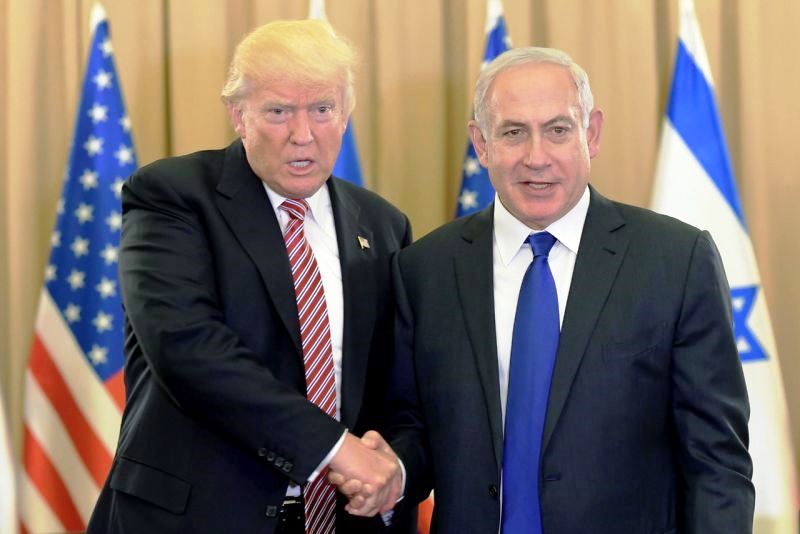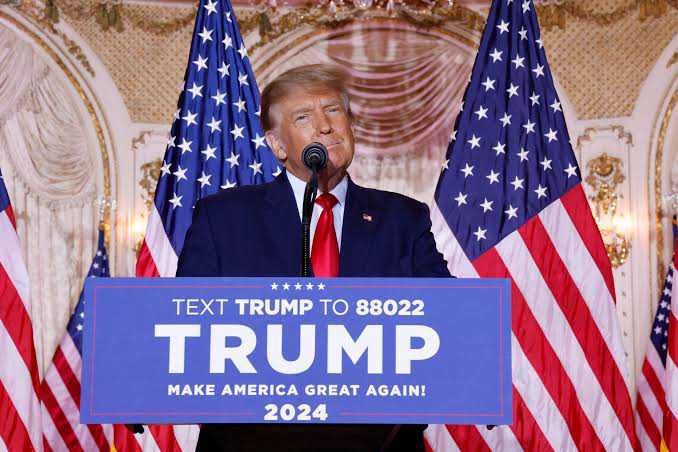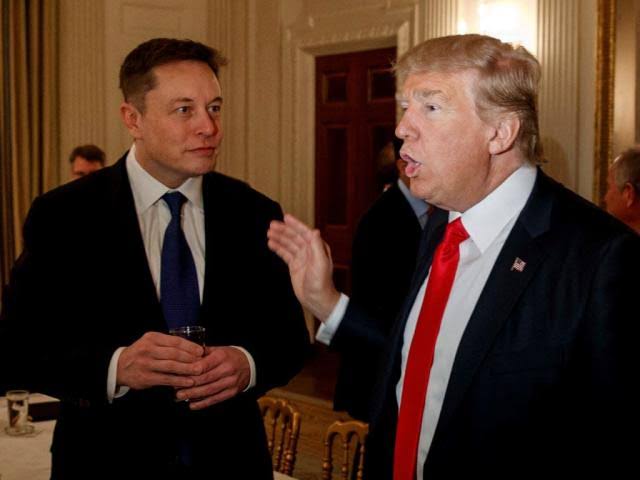Foreign News
Gen. Suleimani should have been killed years ago – Trump brags

United States President, Donald Trump has said Iranian general, Qassem Suleimani killed in Baghdad early Friday by his country’s forces should have been killed many years ago.
Trump who took to facebook on Friday afternoon to justify the killing amid growing tension over the incident, accused Sulaimani of being responsible for the death of many Americans.
“General Qassem Soleimani has killed or badly wounded thousands of Americans over an extended period of time, and was plotting to kill many more…but got caught! He was directly and indirectly responsible for the death of millions of people, including the recent large number of PROTESTERS killed in Iran itself,” Trump wrote.
“While Iran will never be able to properly admit it, Soleimani was both hated and feared within the country. They are not nearly as saddened as the leaders will let the outside world believe. He should have been taken out many years ago!”
Meanwhile, tension has continued to over the killing with Iraqi government and several Shia politicians across the region condemning it.
Earlier on Friday, US government has asked all American citizens to leave Iraq immediately
The U.S. embassy in Iraq which issued the instruction, advised citizens to leave the country via the airports and to avoid going to the embassy under any circumstances as it would be shut and would be safe.
Iran’s supreme leader, Ali Khamenei had vowed that the US would face “severe revenge” for the killing after he ordered three days of mourning over the incident.
Suleimani, who ran Iranian military operations in Iraq and Syria, was targeted while being driven from Baghdad airport by local allies from the Popular Mobilisation Units (PMU). The deputy head of the PMU, Abu Mahdi al-Muhandes, a close Suleimani associate, was also killed in the attack.
“General Suleimani was actively developing plans to attack American diplomats and service members in Iraq and throughout the region,” a White House statement had said after the incident.
“This strike was aimed at deterring future Iranian attack plans. The United States will continue to take all necessary action to protect our people and our interests wherever they are around the world.”
Before the statement, President Trump had tweeted a US flag without comment. Later, the White House put out a statement saying the strike was a “decisive defensive action” carried out “at the direction of the president”.
Iran’s supreme leader, Ali Khamenei, ordered three days of mourning and vowed that the US would face “severe revenge” for the killing.
The Iranian foreign minister, Mohammad Javad Zarif said on Twitter: “The US’ act of international terrorism, targeting & assassinating General Soleimani – THE most effective force fighting Daesh (ISIS), Al Nusrah, Al Qaeda et al – is extremely dangerous & a foolish escalation. The US bears responsibility for all consequences of its rogue adventurism.”
US secretary of state Mike Pompeo posted a video he said showed Iraqis dancing in the street “thankful that General Soleimani is no more”.
Suleimani was commander of the Quds Force, the elite, external wing of the Iran’s Islamic Revolutionary Guard Corps (IRGC), which the Trump administration designated as a terror organisation in April last year. The Pentagon statement claiming responsible for the strike accused the Quds Force of being responsible for the deaths of hundreds of US service members and the wounding of thousands more.
Many consider Suleimani to have been the second most powerful person in Iran, behind Khamenei, and arguably ahead of President Hassan Rouhani. Through a mix of security operations and diplomatic coercion, has been more responsible than anyone else for projecting Iran’s influence in the region.
The escalation had followed a tit-for-tat series of strikes by both sides, which have been protagonists in Iraq since late 2006. Suleimani had been central to almost all that Iran did and was considered by senior officials under Barack Obama as being close to untouchable.
The strike came at a time when Iraq was already on the brink of an all-out proxy war, and hours after a two-day siege of the US embassy in Baghdad by a mob of PMF militants and their supporters. The Pentagon accused Suleimani of having masterminded the mob attack.
That siege followed US air strikes on camps run by a PMF-affiliated militia particularly closely aligned with Tehran, which in turn was a reprisal for that militia’s killing of a US contractor in an attack on an Iraqi army base on Friday.
The US has deployed 750 airborne troops to Kuwait as a rapid reaction force available for use in Iraq, and officials has said up to 3,000 could be sent in the coming days. The defence secretary, Mark Esper, said on Thursday that more militia attacks were expected and the US reserved the right to take preemptive action to stop them.
“There are some indications out there that they may be planning additional attacks,” Esper said. “If we get word of attacks, we will take pre-emptive action as well to protect American forces, protect American lives. The game has changed.”
Suleimani’s death leaves Iraq and the region on the brink of a new upsurge in violence, with Trump’s and Khamenei’s moves and counter-moves hard to predict.
Trump ordered the strike at a time when the US Congress was in recess, and the White House framed the action as an act of self-defence in the context of counter-terror operations. But Democrats and perhaps some Republicans in Congress will see it as an usurpation of the legislature’s authority to decide matters of war and peace.
“One reason we don’t generally assassinate foreign political officials is the belief that such action will get more, not less, Americans killed,” Democratic Senator Chris Murphy said on Twitter. “That should be our real, pressing and grave worry tonight.”










